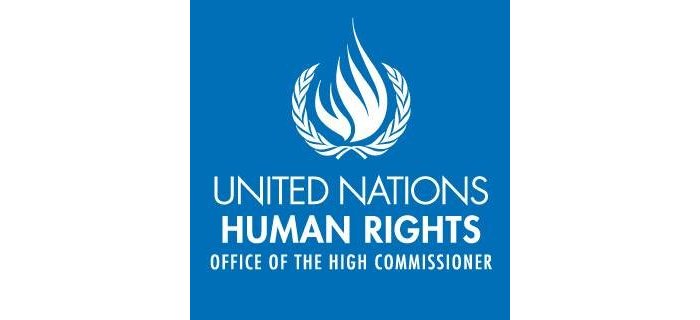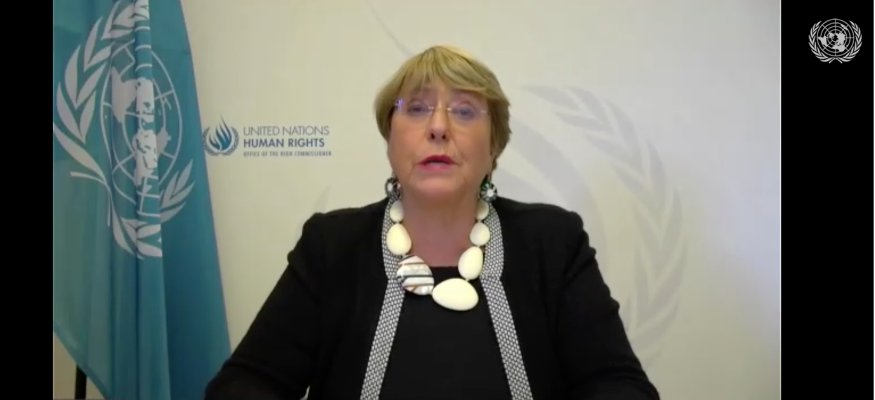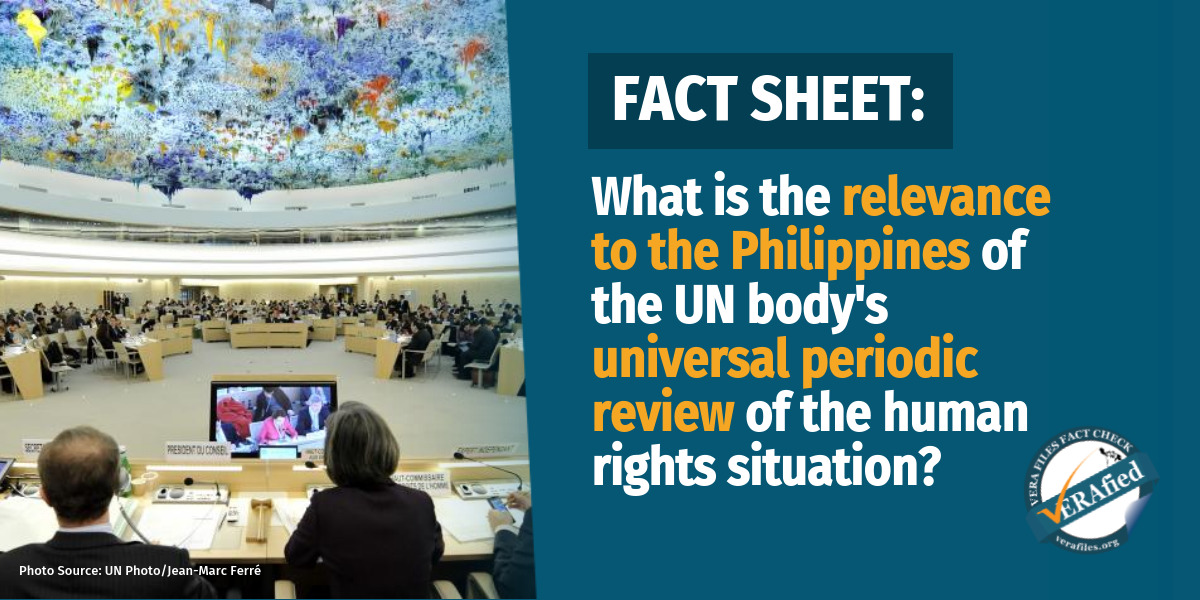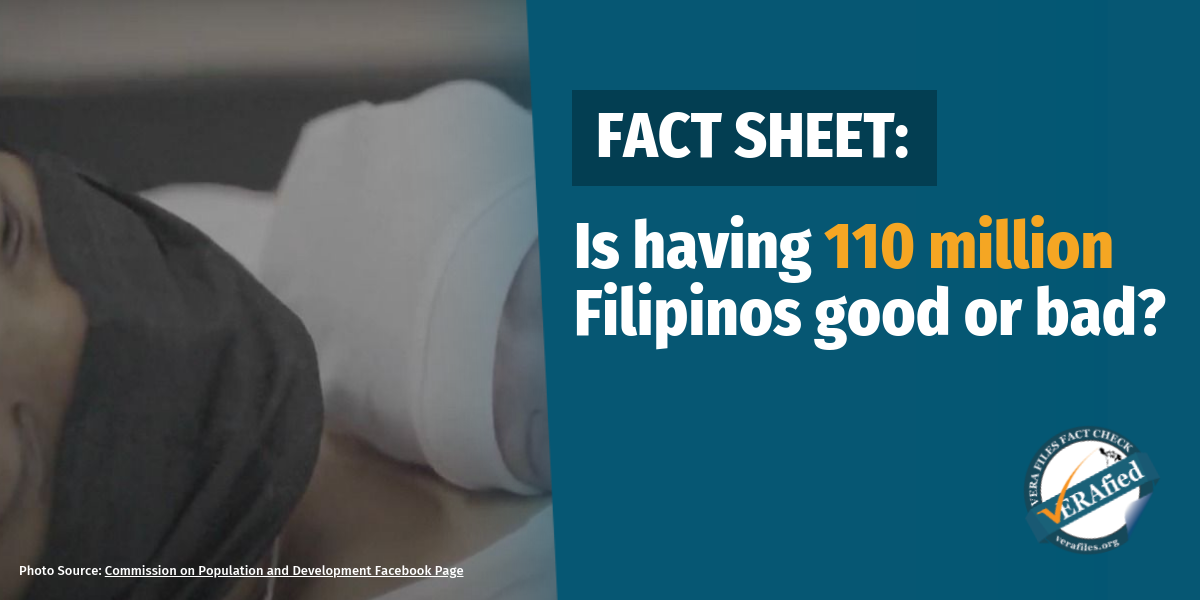The United Nations Office of the High Commissioner for Human Rights (UN OHCHR) is offering “technical assistance and capacity-building” to the Duterte government to help improve the human rights situation in the Philippines.
“The High Commissioner looks forward to working with the other UN agencies, the (Philippine) government and the national human rights commission, with the meaningful participation of a broad range of civil society actors, with the aim of ensuring the promotion and protection of human rights in the Philippines,” OHCHR Deputy Spokesperson Ravina Shamdasani said in an emailed statement to VERA Files.
The statement came after the United Nations Human Rights Council (UNHRC) “adopted without a vote,” during the last day of its 45th session on Oct. 7, a resolution requesting High Commissioner Michelle Bachelet and her office to provide technical assistance and capacity-building to the Philippines “in its continued fulfilment of its international human rights obligations and commitments.” UNHRC cited in the resolution that the Philippine government asked for technical cooperation.
The resolution was proposed by UNHRC member states Nepal, India, and the Philippines, as well as non-members Iceland, Norway, Hungary, Thailand and Turkey.
In the resolution, the council listed several areas where the assistance and capacity-building will focus, including:
- domestic investigative and accountability measures,
- data gathering on alleged police violations,
- engagement with civil society,
- national mechanism for reporting and follow-up,
- counterterrorism legislation, and
- human rights-based approaches to drug control.
“The Human Rights Council has urged the Philippines to step up its investigations of alleged human rights violations and there is a clear need to strengthen those domestic accountability mechanisms,” Shamdasani said.
The council also took note of Bachelet’s mandated report released in June that detailed a “systematic and widespread killings” allegedly perpetrated by state and non-state elements in the Philippines and asked the government to address the issues raised. It also encouraged UN member states and other relevant bodies to “encourage and support” the technical cooperation between Bachelet’s office and the government.
(See UN body seeks impartial probe of killings, scrapping of ‘Oplan Tokhang’)
Bachelet is mandated by the UNHRC to present an oral report in its 48th session in 2021 and submit another report on the implementation of the resolution and the progress of the technical cooperation in its 51st session in 2022.
“The High Commissioner has highlighted her concerns with the human rights situation in the Philippines, including in her report to the Human Rights Council, and hopes the steps envisaged in the resolution will produce meaningful results,” Shamdasani said.
“The UN Human Rights Office and the UN’s human rights mechanisms will continue to monitor progress and the effective implementation of the resolution very closely,” she added.
Shamdasani noted that “the State has a duty to ensure accountability, but if this continues to fail, the Council may need to consider further measures.”
In his Oct. 8 press briefing, Duterte’s Spokesperson Harry Roque said the government is “thankful” to the UNHRC for the resolution and will “fully cooperate” with the UN human rights system.
“Tama po naman iyong kanilang ginawang resolusyon at nagpapasalamat po kami dahil iyan po ay nagpakakita na nagtitiwala pa rin ang UN Human Rights Council sa mga institusyon para mapanagot po ang mga lumalabag sa karapatang pantao ng ating mga kababayan,” Roque said.
(The resolution they adopted was correct and we are thankful because that shows that the UN Human Rights Council still believes that our institutions can hold accountable those violating the human rights of our countrymen.)
Human rights groups want more than just ‘technical cooperation’
International and local human rights groups lamented the UNHRC resolution for the UN rights body’s “failure” and “missed opportunity” in launching an independent, international investigation into the human rights violations in the country despite repeated calls by UN human rights experts and civil society groups.
(See UN rights experts call on ICC to complete probe of Duterte’s drug war)
In a statement, Human Rights Watch (HRW) Deputy UN Director Laila Matar said: “We are deeply disappointed by the collective failure of States at the Human Rights Council to put in place an international investigation into killings and other serious violations committed in the context of the so-called war on drugs in the Philippines.”
For Amnesty International, an international investigation is “urgently needed” to effectively address the “pervasive impunity” in the country and not just technical cooperation as mandated by the “weak resolution.” “The human rights situation in the Philippines warrants more than just ‘technical assistance’ from the UN,” Rachel Chhoa-Howard, Philippines researcher at Amnesty International said.
Local group Karapatan, meanwhile, called on the Philippine government to “allow the access of UN human rights mechanisms in the country to assess domestic accountability mechanisms if they are truly working and if they have nothing to hide.” It said domestic mechanisms have been exposed to have “utterly failed in delivering justice and accountability for victims of human rights violations” and “presented routinely to portray a robust democracy.”
The group believes that the technical cooperation and capacity-building would not stop the Duterte administration’s “human rights violations” unless killings and other rights violations are stopped, perpetrators are prosecuted, laws and policies that “facilitate” these violations, such as Executive Order No.70 and the Anti-Terrorism Act of 2020, are repealed, and an “international, independent, and impartial investigation” is launched.
But HRW and Amnesty International both believe that the Duterte administration is not yet off the hook and the international community is still watching the human rights situation in the country.
“The states that negotiated with the Philippines to agree to this resolution have a responsibility to launch a full international investigation if there is no radical improvement in the human rights situation in the country,” Chhoa-Howard said. “These states face a credibility test: how will they respond if the bloody wave of killings continue, and the brutal crackdown on civil society and the media rages on?”
The Duterte administration has been facing international scrutiny due to its bloody “Oplan Tokhang” and extrajudicial killings in the country. Bachelet said in her report in June that drug-related killings in the Philippines have reached 8,663 since July 2016, based on government data, but rights groups estimate that the casualties could be three-fold of the reported count.
The drug-related killings have also prompted the International Criminal Court (ICC) to launch a preliminary examination into the human rights violations allegedly perpetrated by the Duterte administration in the context of its war on drugs.
Fatou Bensouda, the ICC chief prosecutor handling the case, started the preliminary investigation in 2018 and is expected to complete it in late 2020. Bensouda may ask the ICC to issue an arrest warrant for Duterte to appear before the Netherlands-based court for further investigation before entering trial stages.
Human rights concerns are also threatening trade partnerships and foreign aid for the Philippines.
The European Parliament adopted on Sept. 17 a resolution calling for the “temporary withdrawal” of the tariff-free trade privileges of the Philippines when exporting to European Union member countries. (See VERA FILES FACT CHECK: Roque wrongly claims EU has not withdrawn any country from its tariff-free trade scheme)
Meanwhile, a new bill was filed in the United States’ House of Representatives seeking to stop security assistance to the Philippine National Police (PNP) and the Armed Forces of the Philippines (AFP).
Pennsylvania Representative Susan Wild, author of House Bill 8313, proposed the sanction will only be lifted once all members of the military and police involved in human rights violations are investigated and prosecuted and such violations “have ceased,” among other conditions.
Read the UNHRC’s resolution here.



